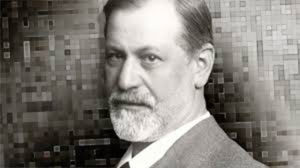Rêves crus et rêves mutatifs
Résumé
Il existe habituellement une différence complète entre les contenus manifeste et latent du rêve. Mais il arrive qu’on fasse un rêve cru, qui, naturellement, provoque le réveil. Un court-circuit s’est produit entre l’inconscient et la conscience en raison d’un manque de censure préconsciente. Au cours de la cure psychanalytique, de tels rêves sont fréquents. Aussi le psychanalyste entend-il souvent leur voix discordante. Ces rêves peuvent s’avérer très utiles si on réussit à les intégrer dans la relation transférentielle. Ils ont alors une valeur mutative. Quand c’est le cas, ils permettent la conquête d’une partie de l’inconscient primaire sauvage. De cette manière un pont est jeté entre l’inconscient primaire universel – les pulsions du ça – et l’inconscient secondaire personnel, de nature plus historique et culturelle. Cette façon de concevoir le rêve nécessite une légère modification de la fiction de l’appareil psychique élaborée par Freud, plus particulièrement en ce qui concerne deux variétés d’inconscient, primaire et secondaire.
Samenvatting
Er bestaat tegenwoordig een welomschreven verschil tussen manifeste en latente inhoud van de droom. Het kan weliswaar gebeuren dat men een rauwe droom heeft, die, natuurlijk, wakker maakt. Een kortsluiting tussen het onbewuste en het bewuste heeft zich dan voorgedaan tengevolge van een gebrek aan voorbewuste censuur. Tijdens een psychoanalytische kuur zijn dergelijke dromen frequent. Ook kan de analyst vaak de discordante teneur ervan horen. Deze soort dromen kunnen erg nuttig blijken wanneer men erin slaagt ze te integreren in de overdrachtsrelatie. Indien dit het geval is, laten ze toe dat een onontgonnen, wild, gebied van het primaire onbewuste veroverd wordt. Op die manier wordt een brug geslagen tussen het universele primaire onbewuste – de impulsen van het id – en het secundaire persoonlijke onbewuste, van meer historische en culturele aard. Deze wijze van opvatting aangaande de droom veronderstelt een lichte wijziging in de zienswijze van Freud betreffende het psychisch apparaat, vooral wat betreft de twee varianten van onbewuste, primair en secundair.
Summary
Usually there is a complete difference between manifest and latent content of dreams. But sometimes there are crude dreams, which naturally awaken the dreamer. A short circuit takes place between the unconscious and the conscious because of missing preconscious censorship. During psychoanalysis, such dreams occur frequently. In these cases, the psychoanalyst often hears their discordant voice. These dreams can prove very useful if one manages to integrate them into the transference relationship. They can then have mutative value. When this happens, they allow mastery of the untamed primitive unconscious. In this way, a bridge is built between the universal primitive unconscious – the drives of the Id – and the personal secondary unconscious, more historical and cultural. This way of thinking about dreams necessitates a slight modification of the fiction of the psychic apparatus as elaborated by Freud, in particular as far as two types of the unconscious are concerned : primary and secondary.





